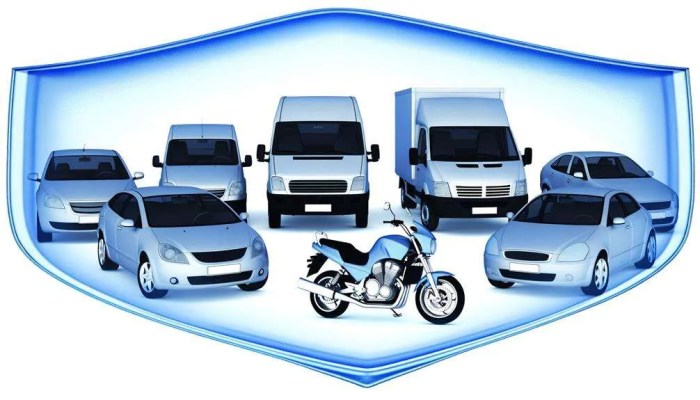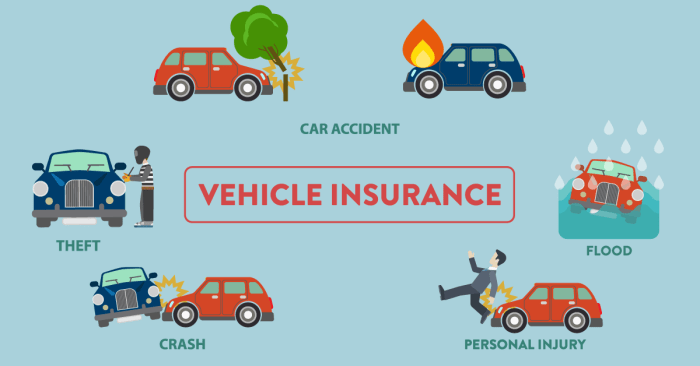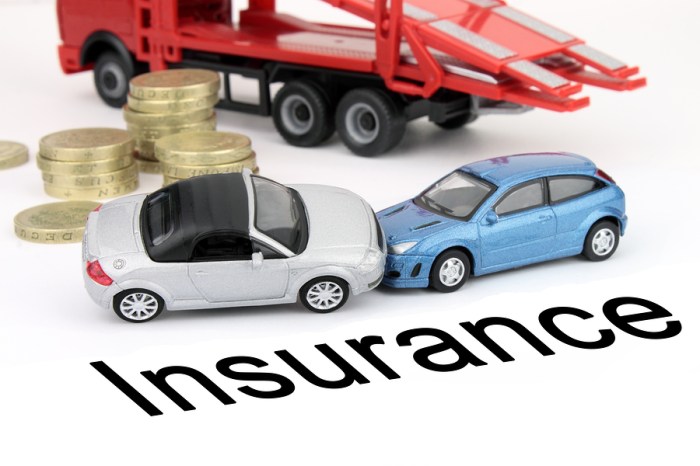Choosing the right vehicle insurance company is a crucial decision, impacting your financial well-being in the event of an accident or unforeseen circumstances. Understanding the various types of coverage, factors influencing premiums, and the claims process is paramount to making an informed choice. This guide delves into the intricacies of vehicle insurance, empowering you to navigate this complex landscape with confidence and secure the best protection for your needs.
From liability and collision coverage to the impact of technological advancements like telematics, we explore the key aspects of vehicle insurance, offering practical advice and insights to help you find the optimal policy. We’ll also examine how to compare different companies, handle claims effectively, and resolve any disputes that may arise. This comprehensive overview will equip you with the knowledge necessary to make informed decisions and protect your investment.
Types of Vehicle Insurance

Choosing the right vehicle insurance can seem daunting, but understanding the different types of coverage available is the first step to securing adequate protection. This section will break down the common types of car insurance, highlighting their benefits and drawbacks to help you make an informed decision.
Liability Coverage
Liability insurance covers damages or injuries you cause to others in an accident. It’s typically divided into bodily injury liability and property damage liability. Bodily injury liability covers medical bills and other expenses for those injured in an accident you caused. Property damage liability covers the cost of repairing or replacing the other person’s vehicle or property. This is usually the minimum insurance required by law, but the coverage limits are often quite low. It’s crucial to consider higher limits to protect yourself from potentially devastating financial consequences. For example, a $100,000 bodily injury liability limit might not be sufficient to cover significant medical expenses resulting from a serious accident.
Collision Coverage
Collision coverage pays for damage to your vehicle resulting from an accident, regardless of who is at fault. This means that even if you cause the accident, your insurance will help cover the cost of repairing or replacing your car. While this offers significant peace of mind, it’s important to note that collision coverage typically has a deductible, meaning you’ll have to pay a certain amount out-of-pocket before the insurance kicks in. The deductible amount influences the premium cost; higher deductibles typically result in lower premiums. For instance, choosing a $1000 deductible instead of a $500 deductible could significantly reduce your monthly premium.
Comprehensive Coverage
Comprehensive coverage protects your vehicle against damage caused by events other than collisions, such as theft, vandalism, fire, hail, or natural disasters. Unlike collision coverage, comprehensive coverage doesn’t require the involvement of another vehicle. This type of insurance provides broader protection but often comes with a higher premium. Consider the value of your vehicle and the likelihood of these events occurring in your area when determining if comprehensive coverage is necessary. For example, living in a high-theft area might make comprehensive coverage a worthwhile investment.
Uninsured/Underinsured Motorist Coverage
Uninsured/underinsured motorist (UM/UIM) coverage protects you in the event you’re involved in an accident with a driver who doesn’t have insurance or doesn’t have enough insurance to cover your damages. This is particularly important because not all drivers carry adequate insurance. UM coverage covers your medical bills and vehicle repairs, while UIM coverage covers the difference between the other driver’s liability coverage and your actual damages. This coverage is essential for financial protection in situations where the at-fault driver is uninsured or underinsured. A real-life example would be an accident with a driver who only carries the state minimum liability insurance, which may not be enough to cover your medical bills and vehicle repairs.
Table Comparing Vehicle Insurance Types
| Insurance Type | Coverage | Cost Factor | Typical Coverage Limits |
|---|---|---|---|
| Liability | Damages/injuries you cause to others | Relatively low, varies by state and coverage limits | $25,000 – $100,000 per person/$50,000 – $300,000 per accident (Bodily Injury); $25,000 – $100,000 (Property Damage) |
| Collision | Damage to your vehicle in an accident, regardless of fault | Moderate to high, depends on deductible and vehicle value | Actual cash value of vehicle (up to policy limits) |
| Comprehensive | Damage to your vehicle from non-collision events | Moderate to high, depends on vehicle value and risk factors | Actual cash value of vehicle (up to policy limits) |
| Uninsured/Underinsured Motorist | Damages caused by an uninsured or underinsured driver | Moderate, often bundled with liability | Varies by state and policy; often matches liability limits |
Choosing a Vehicle Insurance Company

Selecting the right vehicle insurance company is crucial for securing adequate coverage at a competitive price. A thorough comparison of different providers is essential to ensure you’re making an informed decision that aligns with your needs and budget. Failing to do so could result in inadequate coverage or paying more than necessary.
Choosing a vehicle insurance company involves careful consideration of several factors, including price, coverage options, customer service reputation, and claims processing efficiency. A systematic approach to comparing different insurers will help you find the best fit.
Comparing Vehicle Insurance Companies
Effectively comparing vehicle insurance companies requires a structured approach. Begin by identifying your needs—what level of coverage do you require? Then, obtain quotes from several companies, ensuring you’re comparing apples to apples (i.e., the same coverage levels). Pay close attention to the details within each quote, including deductibles, premiums, and any exclusions. Online comparison tools can be helpful, but always verify the information directly with the insurance company. Consider factors beyond price, such as customer reviews and ratings, which can provide insights into the company’s responsiveness and efficiency in handling claims.
Importance of Reading Policy Details
Before committing to a vehicle insurance policy, meticulously review the entire policy document. Don’t just skim the highlights; understand the terms and conditions, exclusions, and limitations of coverage. Pay particular attention to the definition of covered events, the claims process, and any specific requirements for filing a claim. If anything is unclear, contact the insurance company directly for clarification before signing the policy. Misunderstanding your policy could lead to disputes or denied claims later.
Comparison of Major Insurance Providers
The following table compares three major insurance providers, highlighting their strengths and weaknesses based on general industry perception and readily available online reviews. Note that individual experiences may vary.
| Insurance Provider | Customer Service | Claims Processing | Policy Features |
|---|---|---|---|
| Company A | Generally positive reviews, readily available online support. Some complaints about long wait times during peak periods. | Efficient claims processing reported by many customers, with a relatively quick turnaround time. However, some instances of delays have been noted. | Offers a wide range of coverage options, including comprehensive and collision, with customizable add-ons. Competitive pricing, but may lack certain specialized features. |
| Company B | Mixed reviews, with some praising their responsiveness while others report difficulty contacting representatives. | Claims processing speed varies, with some customers reporting lengthy delays. Positive feedback on transparency throughout the claims process. | Offers standard coverage options with competitive pricing. Lacks some specialized coverage options available with other providers. |
| Company C | High customer satisfaction ratings, known for prompt and helpful customer service representatives. | Generally efficient claims processing, with a reputation for fair settlements. Few reported issues with delays. | Provides comprehensive coverage options with a range of add-ons. Pricing tends to be slightly higher compared to competitors, but the added features may justify the cost for some. |
End of Discussion

Securing adequate vehicle insurance is a fundamental aspect of responsible vehicle ownership. By understanding the nuances of policy types, premium factors, and the claims process, you can confidently select a vehicle insurance company that aligns with your individual requirements and budget. Remember to carefully review policy details, compare offerings from multiple providers, and prioritize excellent customer service. Proactive engagement and informed decision-making will ensure you have the appropriate protection in place, providing peace of mind on the road.
FAQ Corner
What is the difference between liability and collision coverage?
Liability coverage pays for damages you cause to others, while collision coverage pays for repairs to your vehicle regardless of fault.
How can I dispute a claim denial?
Review your policy, gather evidence supporting your claim, and contact your insurer to formally appeal the decision. If unsuccessful, consider mediation or legal counsel.
What is uninsured/underinsured motorist coverage?
This coverage protects you if you’re involved in an accident with an uninsured or underinsured driver.
Can I get a discount on my insurance premiums?
Many insurers offer discounts for safe driving records, bundling policies, anti-theft devices, and completing defensive driving courses.
What is a deductible?
A deductible is the amount you pay out-of-pocket before your insurance coverage begins.